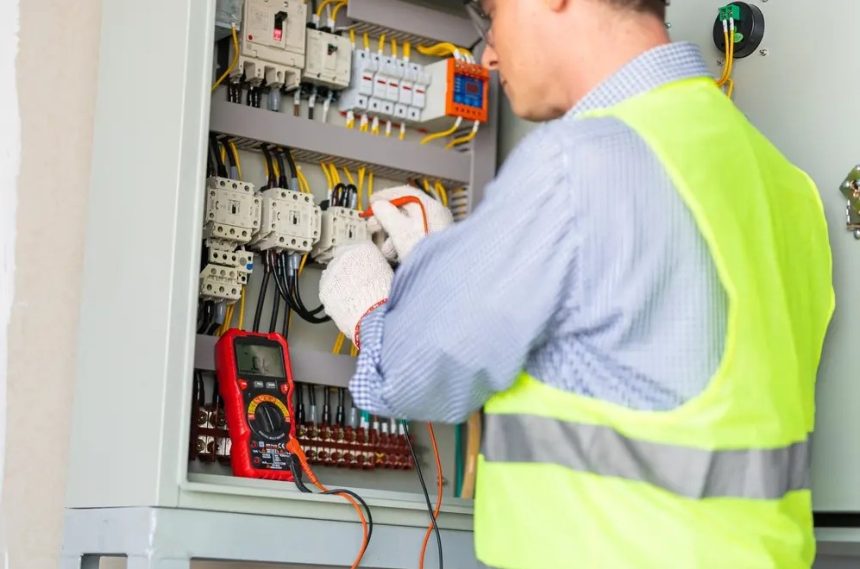Building a home is an exciting yet complex process. One of the most critical aspects of construction is setting up the electrical system. When everything from wiring to electrical panel installation in Hawaii Kai, HI, is handled by a licensed electrical contractor, safety, efficiency, and long-term reliability are secured. Without expert planning, however, homeowners may face costly repairs and costly electrical failures.
The Role of an Electrical Contractor in Home Construction
An electrical contractor is essential from the earliest stages of construction, ensuring that the home’s power system is planned and installed correctly. Their role includes:
- Designing wiring layouts to meet household electrical needs
- Integrating modern electrical solutions for energy efficiency and convenience
- Collaborating with architects and builders for seamless construction
Homeowners can avoid electrical mishaps and costly repairs in the future when they are assisted by electrical experts.
Stages of Electrical System Installation
A home’s electrical system is installed in multiple phases, each requiring careful attention to detail.
- Temporary power setup: Provides electricity needed to operate construction equipment and tools
- Rough-in wiring: Placement of wires, outlets, and circuit breakers before walls are closed for good
- Final installation: Connecting fixtures, appliances, and testing for safety compliance
You can count on a licensed contractor to execute each stage properly, preventing future issues.
Safety First: Common Electrical Hazards During Construction
Construction sites present numerous electrical hazards that can pose serious risks without proper management. Issues such as exposed wiring, overloaded circuits, and poor grounding can lead to fires or electrocution. A licensed electrical contractor follows strict safety protocols to mitigate these dangers and ensure compliance with building codes.
Common hazards include:
- Increased fire risks due to faulty wiring
- Unprotected circuits leading to electrocution
- Water exposure near electrical setups causing short circuits
A contractor’s expertise allows for all safety measures to be in place, thus ensuring workers and homeowners remain protected.
DIY vs. Professional: Why Not to DIY Electrical Work
Because of potential savings from labor fees, some homeowners may be tempted to attempt electrical work themselves. The risks of this, however, far outweigh the benefits.
DIY work can lead to:
- Improper wiring can cause fire hazards
- Code violations may result in failed inspections and costly fixes
- Overloaded circuits increase the chance of system failure
Hiring a licensed contractor guarantees that the job is done correctly and safely the first time.
Energy Efficiency: Modern Electrical Solutions
Today’s electrical systems can incorporate energy-efficient solutions that help homeowners reduce energy consumption and lower utility costs. An experienced contractor can implement modern solutions, such as:
- Smart home automation for energy management
- LED lighting that reduces electricity usage
- High-efficiency appliances that lower overall consumption
Investing in these upgrades enhances both convenience and long-term savings.
Future-Proof Electrical Upgrades
Planning for future electrical needs can prevent costly renovations down the road. Homeowners may need additional circuits for:
- Electric vehicle chargers
- Solar panel integration
- Smart home technology expansions
From simple inspections to circuit breaker installation, working with a contractor helps keep your home adaptable to new technologies.
What to Look for in an Electrical Contractor
Not all electrical contractors are reliable. Homeowners should look for professionals who:
- Hold proper licensing and certifications that meet local regulations
- Have strong reviews and references from previous residential projects
- Provide transparent pricing with clear estimates and no hidden fees
- Offer warranties on workmanship to guarantee quality service
A reputable contractor will communicate clearly, provide a detailed plan, and be upfront about costs and timelines.
Questions to Ask Your Electrical Contractor
Choosing the right electrical contractor requires asking the right questions. Be sure to make inquiries about:
- Licensing and insurance to confirm credibility
- Past residential project experience for proven expertise
- Warranty options for added protection
Understanding these details helps in making an informed hiring decision and securing a reliable expert for the job.
Making Sense of Electrical Jargon
Electrical terms can be confusing, but understanding key concepts makes discussions with contractors easier.
- Amperage: Measures electrical current flow
- Voltage: Determines the force of electricity
- Circuit breakers: Protect against overloads and electrical faults
Learning these terms ensures homeowners can better understand and manage their home’s electrical system.
Electrical work is not an area to cut corners. A licensed contractor ensures that your home’s electrical system is designed to be safe, efficient, and adaptable to future needs.
Investing in professional electrical services means safeguarding your property. When building a home, don’t risk costly mistakes. Working with a professional ensures that your home will whatever life throws at it.














